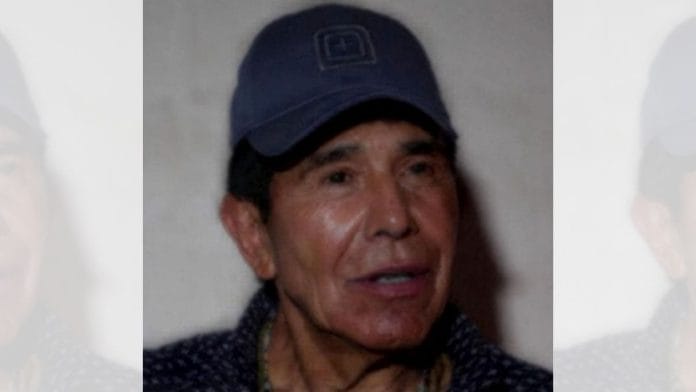New Delhi: Mexico, in a surprise move Thursday, extradited to the United States 29 of its ‘notorious drug traffickers’, including Rafael Caro Quintero, implicated in the 1985 killing of the US Drug Enforcement Administration (DEA) agent Enrique ‘Kiki’ Camarena.
The dramatic move, Mexico’s highest number of extraditions at once, came after US President Donald Trump’s threat to impose 25% tariffs on Mexican goods starting 4 March this year unless Mexico took more aggressive action against its drug cartels, particularly the flow of fentanyl across the border. The potential tariffs would severely impact Mexico’s economy, which relies heavily on exports to the US.
The extradited individuals included members of five of the six Mexican drug cartels labelled as ‘foreign terrorist organisations’ by the Trump administration.
On Thursday, Trump posted on Truth Social: “Drugs are still pouring into our Country from Mexico and Canada at very high and unacceptable levels … We cannot allow this scourge to continue to harm the USA, and therefore, until it stops, or is seriously limited, the proposed TARIFFS scheduled to go into effect on MARCH FOURTH will, indeed, go into effect, as scheduled.”
Among those handed over to the US by the Claudia Sheinbaum-led Mexican government were Antonio Oseguera Cervantes, the brother of Mexico’s most-wanted drug lord, Nemesio Oseguera Cervantes, who leads the Cartel de Jalisco Nueva Generación (CJNG).
Also extradited was Jose Angel ‘El Guerito’ Canobbio, a high-ranking figure in a faction of the Sinaloa Cartel, which the sons of Joaquin ‘El Chapo’ Guzman Loera lead.
The extraditions also included Miguel Ángel and Omar Treviño Morales, two leaders of the Cártel del Noreste (formerly Los Zetas), and members of La Nueva Familia Michoacana and Cártel de Golfo (Gulf Cartel).
The US government considers CJNG, alongside the Sinaloa Cartel, as one of the two major Mexican drug trafficking organisations responsible for flooding American streets with fentanyl in recent years.
Mexican officials, who were in Washington on Thursday for trade talks, agreed to take measures in the coming weeks to rein in fentanyl and arms trafficking. High-level Mexican officials, including Foreign Minister Juan Ramón de la Fuente, were in Washington this week, aiming to halt the US from imposing punitive economic measures on Mexico through negotiations.
Rafael Caro Quintero
Rafael Caro Quintero, a former leader of the Guadalajara cartel, is a long-sought target of the US DEA for his 1985 role in the Camarena abduction and murder, which affected US-Mexico relations for decades.
After 28 years in prison for the crime, Quintero was freed from a Mexican prison in 2013 on a legal technicality before completing his 40-year sentence, sparking outrage among DEA officials. Mexican forces recaptured him in 2022 when the US renewed its push for his extradition and offered a $20 million reward for his capture.
“This moment is deeply personal for the men and women of the DEA who believe Caro Quintero is responsible for the brutal torture and murder of DEA Special Agent Enrique ‘Kiki’ Camarena,” Derek Maltz, the CBS quoted the acting DEA head as saying.
According to reports, Mexican President Claudia Sheinbaum bypassed the formal US-Mexico extradition treaty in the latest handovers to strengthen relations with Washington. This approach could allow US prosecutors to charge Caro Quintero for Camarena’s murder rather than only for the drug trafficking offences outlined in the original extradition request.
The decision to hand over such high-profile drug lords comes across as a significant concession by Mexico as part of ongoing negotiations to stave off Trump’s tariff threat. In return, the US has insisted on stricter crackdowns on Mexican cartels, illegal immigration, and fentanyl production. Officials have clarified that they require tangible action from Mexico to avoid imposing the tariffs.
(Edited by Madhurita Goswami)
Also Read: Who is Claudia Sheinbaum, climate scientist set to be Mexico’s 1st woman & Jewish President






